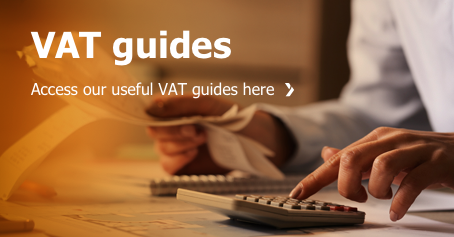UAE VAT Guide

Ankur Jain
UAE VAT specialist
This guide is an overview of the UAE’s Value Added Tax (“VAT”) system, focused on how it affects foreign businesses trading with UAE. It is general in nature and unlikely to cover the specifics of your scenario. It should be read as such and not be construed as advice. For advice as to how your business is affected by UAE VAT, please contact a MMJS UAE VAT specialist.
- What is the tax called?
- What is the tax authority?
- What type of tax is it?
- What is it due on?
- What are the VAT rates?
- What does a VAT number look like?
- Is there a registration limit?
- When does a non-established entity need to register?
- When is the place of supply in the UAE?
- Any special rules?
- Does a non-established entity need a fiscal representative?
- How often do VAT returns need to be submitted? Are penalties imposed for late registration?
- Are penalties imposed in other circumstances?
- Can VAT incurred by overseas businesses be Recovered?
- Can VAT be deducted?
- Do I need to issue an invoice?
- Other
What is the tax called?
VAT – Value Added Tax
What is the tax authority?
Federal Tax Authority
What type of tax is it?
Consumption based tax on consumers, on business transactions and imports
What is it due on?
Taxable turnover – VAT is added to the value of supplies of goods and services where the ‘place of supply’ is UAE
What are the VAT rates?
Taxable:
5% – default (standard) rate
0% – zero-rate
Exempt:
Exemptions for specific services/goods
0% – zero-rate
– Exports of goods and services
– International transportation of goods and passengers
– Means of transport
– Healthcare
– Education
– First supply of residential building
– Precious metal
– The supply or import of crude oil and natural gas
Exempt:
– Financial Services
– Supply of bare land
– Subsequent supply of residential buildings
– Supply of local passenger transport
What does a VAT number look like?
1XXXXXXXXXXXXX3 (fifteen digits)
Is there a registration limit?
Mandatory registration threshold for resident in UAE – Taxable supplies of AED 375,000 (USD 100,000 approx.) during the 12 preceding months or expected in the next 30 days.
Voluntary registration threshold for resident in UAE – Taxable supplies or expenses of AED 187,500 (USD 50,000 approx.) during the 12 preceding months or expected in the next 30 days.
Registration threshold for non-resident in UAE – Nil
When does a non-established entity need to register?
Non-established entity would be obligated to register for VAT in UAE if they start making taxable supplies in UAE where no one else is liable to account for the VAT due on such supplies.
When is the place of supply in the UAE?
Goods:
– The supply was made in the UAE and does not include Export from or Import into the UAE.
– If the supply includes exporting to a place outside the Implementing GCC States.
– If the installation or assembly of the goods is carried out in the UAE.
Services:
– The place of supply of services shall be in the UAE where the taxable supplier is resident in the UAE.
Any special rules?
The VAT Law sets out special place of supply rules for services. These rules are summarized below:
– Service: Rental of a means of transport to a customer who is not a taxable person
– Place of supply: Where the means of transport is placed at the disposal of the non-taxable customer.
– Service: Transport of goods, passengers and services related to such transport
– Place of supply: Where the transport starts.
– Service: Restaurant, hotel, catering, cultural, artistic, sporting or recreational events.
– Place of supply: Where the service is actually performed.
– Service: Related to real estate.
– Place of supply: Where the real estate is located.
– Service: Telecommunications and electronic services.
– Place of supply: Where the services are used and enjoyed, to the extent of such use and enjoyment.
Does a non-established entity need a fiscal representative?
Fiscal representation is not required for non-established entity in UAE. A non-established may appoint a tax agent resident in UAE, duly approved by the FTA, to act as tax representative, by way of an official power of attorney.
How often do VAT returns need to be submitted? Are penalties imposed for late registration?
Quarterly. However, in certain cases, of businesses having high taxable turnover have been allotted with monthly VAT return filing. Conversely, businesses having minimal taxable turnover have been allocated biannual tax return filing.
Failure to apply for registration within the stipulated deadline will attract a penalty not exceeding AED 10,000 (USD 2,700 approx.).
Are penalties imposed in other circumstances?
– Late submission of a VAT Return within the prescribed period will attract a penalty of AED 1,000 (USD 272 approx.) for the first time and AED 2,000 (USD 544 approx.) in case of repetition within 24 months.
– Late payment of the VAT due, within the prescribed period will attract a fine between 2% to 200% (maximum) of the value of the VAT which should be paid.
– An administrative penalty up to AED 10,000 (USD 2,700 approx.) may be charged for failure to apply for deregistration within the stipulated deadline.
– An administrative penalty of AED 2,500 (USD 680 approx.) for each detected case for failure to comply with the conditions and procedures for issuing a Tax Invoice.
Can VAT incurred by overseas businesses be Recovered?
Non-Resident Persons that are not registered for VAT in UAE may claim a refund on the VAT paid on purchases made within UAE if following criteria is met:
– The refund applicant is not registered or obliged to register for VAT in UAE
– The refund applicant is registered for VAT or any other similar tax in their country of residence
– The refund applicant is entitled to claim a VAT refund if the total VAT claimed is equal to AED 2,000 (USD 550 approx.) or more
– The VAT refund is being claimed for supplies used to conduct their business activity
– The refund applicant has not already submitted a refund application for the same calendar year
Can VAT be deducted?
A taxable person is entitled to deduct input VAT paid or payable by him on costs incurred while carrying out his business for the purposes of making taxable supplies, including supplies subject to the zero rate.
VAT on expenditure used in connection with exempt supplies cannot be deducted.
Do I need to issue an invoice?
A taxable person must issue tax invoices in respect of supplies of goods and services made by him in UAE, whether these supplies are made to resident persons or to non-resident persons. There are some specific situations where this requirement does not apply.
Other
UAE VAT law provides for concept of reverse charge mechanism.
Under the reverse charge mechanism, the VAT liability for certain taxable supplies is shifted from the supplier to the customer. The customer, if registered for VAT in the UAE imports goods or services for the purposes of his business, he shall be treated as making a taxable supply to himself and shall be responsible for all applicable tax obligations and accounting for due tax in respect of such supplies.
From a practical point of view, the reverse charge mechanism allows for a non-resident supplier to supply goods or services subject to VAT in UAE without being required to register for VAT in UAE.

